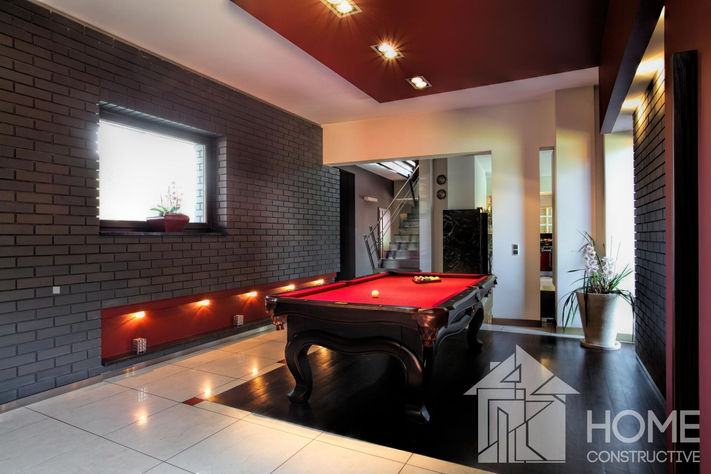
BASEMENT CONVERSIONS IN LONDON
Basement conversions in London maximise unused space and with the right design and waterproofing, can add significant value to your property while making the most of the potential beneath your home.
A basement conversion is the perfect solution when expanding upwards or outwards isn’t an option. In London where space is precious, converting your basement can transform your home and family life. With modern technology and materials, basements are no longer dark, cramped areas – they can become bright, functional rooms. At Home Constructive, we specialise in basement conversions that exceed our clients’ expectations, ensuring a smooth, hassle-free process with safety as our top priority.
Often a basement conversion creates a large versatile space that can be used for a home office, gym, or extra bedrooms. Others use the opportunity to reconfigure the layout of their entire home, for example one of our clients opted to create an open-plan kitchen and living room in the basement of their Uxbridge home.
Basement Conversions with Home Constructive
When converting your basement, choosing the right builder is crucial. With Home Constructive, you'll have access to expert builders with experience in basement conversions. Their work is supervised by our construction project manager with experience in structural engineering, ensuring both safety and quality at every stage of the project.
Our project manager oversees the whole works from the creation of a safe and secure shell and core, to the fit-out. The fit-out phase covers everything from electrical and plumbing to walls, flooring, lighting, plastering, and painting. With Home Constructive, you won’t have to hunt for the right tradespeople. We handle it all while keeping you involved and updated on progress, timelines, and key decisions every step of the way until completion.
Understanding the Basement Conversion Process
Meeting with our team offers the opportunity to discuss your vision for the space and ask any questions you may have about the logistics of renovation.
Pre-construction our team are happy to advise on the planning process and procedures including party wall agreements and the appointment of building control. The project manager overseeing your build will always make you aware of the plans and documentation required.
Basement conversions involve tackling complex issues like structural integrity, tanking and water proofing, plumbing, and electrical systems. Our team is comprised of experts in each trade, brought together to tackle projects cohesively. We make sure our work adheres to safety standards, follows regulations, and optimises the space for maximum use.
During the build phase our team combine competence and communication, ensuring our projects run smoothly to both your budget and timeframe.
Get in Touch
If you’d like to discuss a London basement conversion, you can reach our team via phone on 07891 981021 or alternatively, you can send an email to artan@homeconstructive.com
For more ways to get in touch visit our Contact Us page.
Why Choose Home Constructive
At Home Constructive, we make your vision a reality. Once you know what you want, we’ll guide you every step of the way. You’ll have a dedicated project manager to answer your questions and ensure everything runs smoothly—from the first plan to the final finish.
If you're a London homeowner looking to expand and enhance your space, trust Home Constructive to bring your ideas to life—on time, on budget, and exactly how you imagined.














